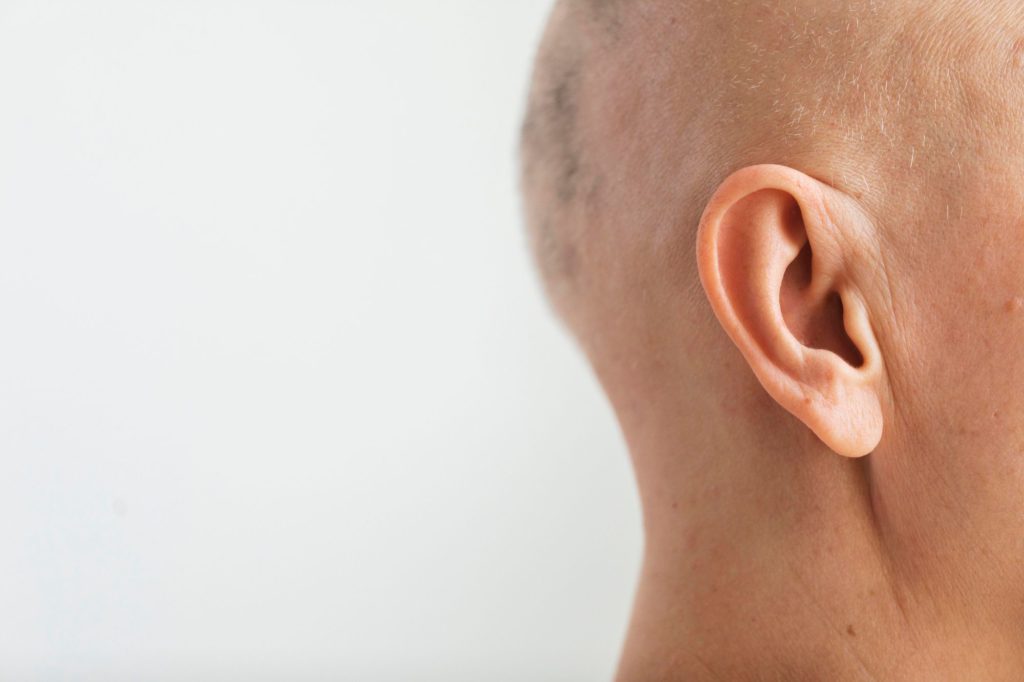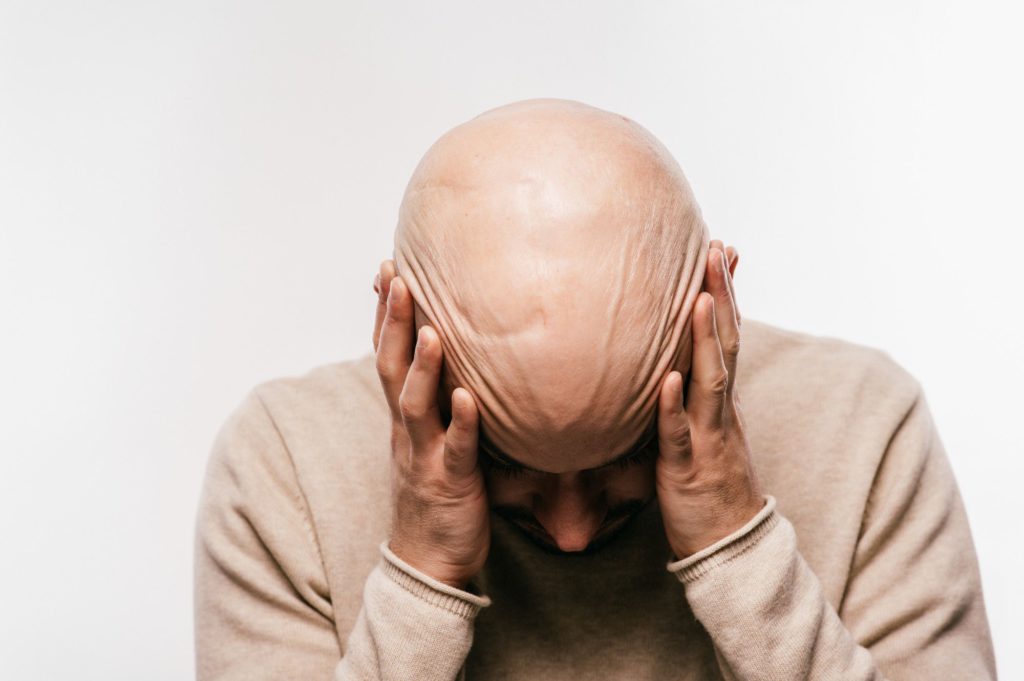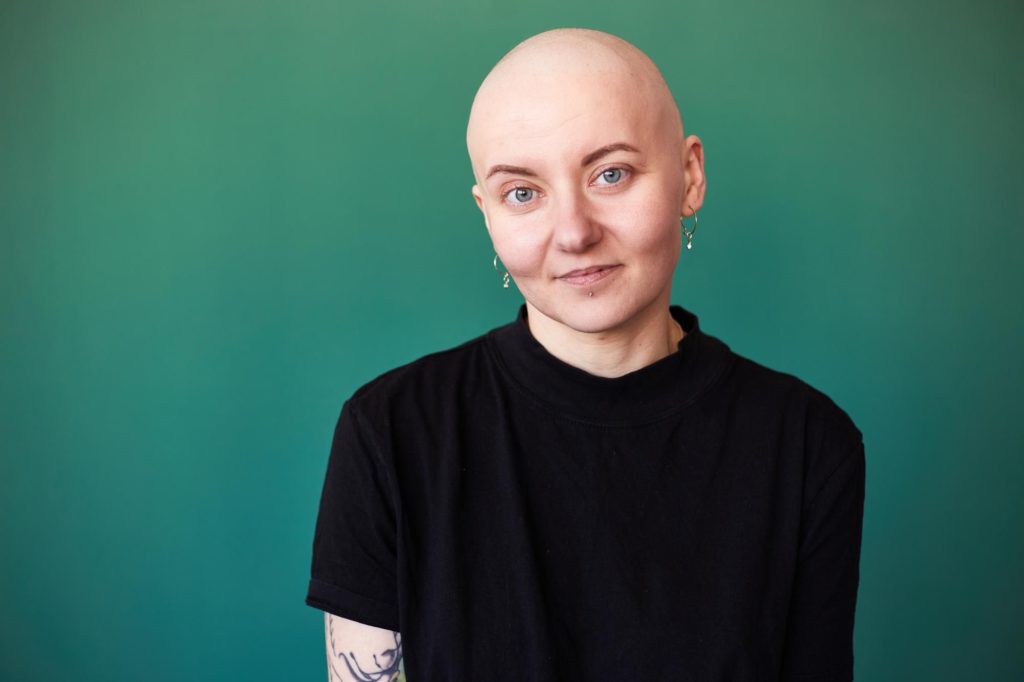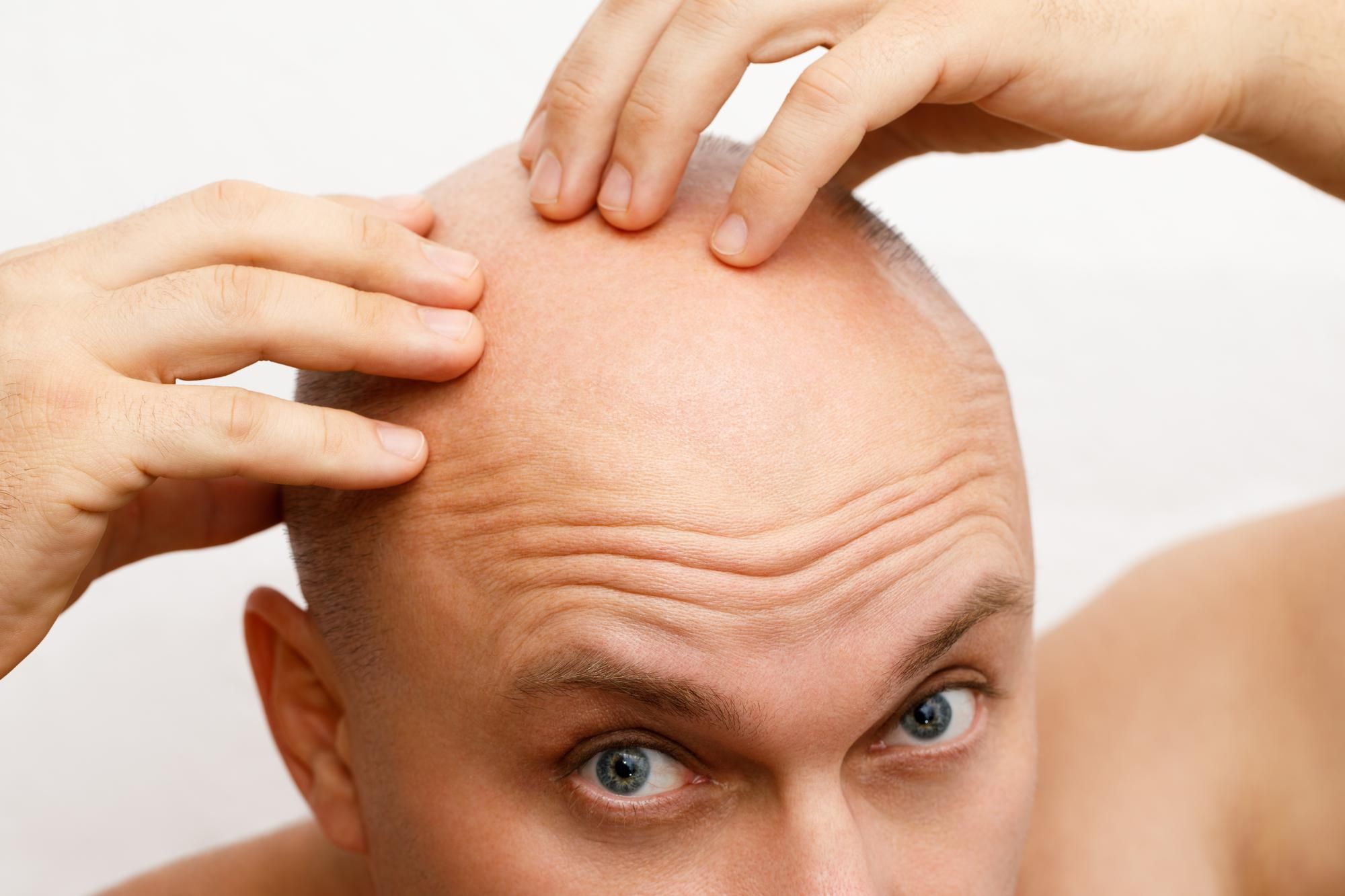Alopecia Totalis is a rare autoimmune disorder that can lead to complete baldness on the scalp. While there is no known cure for the condition, there are various treatment options available to manage its symptoms and slow down its progression. In this article, we will explore the different treatment options available for Alopecia Totalis and how they work to manage the condition. We will also discuss the potential causes and risk factors associated with the condition, as well as its common symptoms and psychological effects. If you or someone you know is experiencing sudden hair loss or any of the symptoms associated with Alopecia Totalis, it is important to seek medical advice for proper diagnosis and treatment.
Understanding Alopecia Totalis
Alopecia Totalis is a rare autoimmune disorder that affects hair follicles, leading to hair loss on the scalp. It is classified as an advanced form of alopecia areata, a condition that causes patchy hair loss. Unlike alopecia areata, which can resolve on its own, Alopecia Totalis is usually permanent and can lead to complete baldness on the scalp. Click to Learn more about Alopecia Areata and discover the latest treatment options!
While the exact causes of Alopecia Totalis are not fully understood, researchers believe that genetics and environmental factors play a role in the development of the condition. Some studies have also linked Alopecia Totalis to other autoimmune disorders such as thyroid disease and vitiligo.

Alopecia Totalis can have a significant impact on an individual’s self-esteem and quality of life, and many people with the condition may feel self-conscious or embarrassed about their appearance. It is important to seek support from friends, family, and healthcare professionals to manage the emotional and psychological impact of Alopecia Totalis.
Although there is no known cure for Alopecia Totalis, there are various treatment options available to manage the symptoms and slow down the progression of the condition. It is essential to work with a dermatologist or other healthcare professional to find the most suitable treatment approach for each individual case.
In the following sections, we will explore the different treatment options available for Alopecia Totalis and how they work to manage the condition.
Causes of Alopecia Totalis
The exact cause of Alopecia Totalis is not yet fully understood, but researchers believe that a combination of genetic and environmental factors may contribute to its development. Here are some of the potential causes and risk factors associated with Alopecia Totalis:
- Autoimmune disorders: Autoimmune disorders such as Alopecia Totalis involve the body’s immune system attacking its own hair follicles by mistake. Individuals with other autoimmune disorders such as thyroid disease, type 1 diabetes, or vitiligo are at higher risk of developing Alopecia Totalis.
- Genetics: Research has shown that Alopecia Totalis may run in families, suggesting that there may be a genetic component to the condition.
- Environmental factors: Exposure to certain environmental triggers, such as viral infections, toxins, or stress, may trigger Alopecia Totalis in individuals who are genetically predisposed to the condition.
- Age and gender: Alopecia Totalis is more common in people under the age of 30, and it affects both men and women equally.
- Other factors: Some studies have suggested that certain medications or treatments, such as chemotherapy or radiation therapy, may increase the risk of developing Alopecia Totalis. Further research is needed to verify these findings.

It is important to note that while these factors may increase the risk of developing Alopecia Totalis, they do not necessarily cause the condition. The exact mechanisms that lead to the onset of Alopecia Totalis are still being studied, and further research is needed to fully understand the causes of this rare disorder.
Symptoms of Alopecia Totalis
Alopecia Totalis is a rare type of hair loss that affects the entire scalp, resulting in the loss of all hair on the head. Here are some of the common symptoms associated with Alopecia Totalis:
- Sudden hair loss: In most cases, hair loss associated with Alopecia Totalis occurs rapidly, with hair falling out in large clumps within a matter of weeks or months. Discover the secrets to preventing and treating hair loss today – Read our expert tips!
- Smooth, bald patches: The hair loss associated with Alopecia Totalis typically results in smooth, bald patches on the scalp, which may appear shiny or pink in color.
- Absence of hair follicles: Unlike other forms of hair loss, Alopecia Totalis results in the complete destruction of hair follicles, which means that hair regrowth is unlikely without treatment.
- Nail abnormalities: In some cases, individuals with Alopecia Totalis may also experience nail abnormalities, such as pitting or ridges on the nails.
- Psychological effects: The sudden and complete loss of hair can be emotionally distressing for many individuals, leading to feelings of anxiety, depression, or low self-esteem.

It is important to note that the severity and extent of hair loss can vary from person to person, and some individuals may experience partial regrowth of hair over time. However, without treatment, most people with Alopecia Totalis will experience permanent hair loss. If you are experiencing sudden hair loss or any of the symptoms associated with Alopecia Totalis, it is important to speak with a healthcare professional for proper diagnosis and treatment.
Alopecia Totalis Cure and Treatment Options
While there is currently no cure for Alopecia Totalis, there are several treatment options available to help manage the condition and promote hair regrowth. Here are some of the most commonly used treatment options:
- Topical steroids: Topical steroids, such as corticosteroids, are commonly used to reduce inflammation and promote hair regrowth in individuals with Alopecia Totalis. These medications are typically applied directly to the scalp and can be effective in promoting hair regrowth in some cases.
- Immunotherapy: Immunotherapy involves applying a chemical irritant, such as diphencyprone (DPCP), to the scalp to stimulate an immune response and promote hair regrowth. While the treatment can be time-consuming and may require several sessions, it can be effective in promoting hair regrowth in some individuals.
- Systemic steroids: In some cases, systemic steroids may be prescribed to reduce inflammation and promote hair regrowth in individuals with Alopecia Totalis. However, long-term use of systemic steroids can have significant side effects, such as weight gain, high blood pressure, and increased risk of infection.
- Topical minoxidil: Topical minoxidil, commonly known as Rogaine, is a medication that is applied directly to the scalp to promote hair regrowth. While the medication is not specifically approved for the treatment of Alopecia Totalis, it may be effective in some cases.
- Hair transplantation: In some cases, hair transplantation may be an option for individuals with Alopecia Totalis who have not responded to other treatments. Hair transplantation involves removing small plugs of hair from areas of the scalp where hair is still growing and transplanting them to areas of the scalp that are bald.
- Wigs and Hairpieces: Wigs and hairpieces can be used to cover up hair loss caused by Alopecia Totalis. These can be a great option for those who do not want to undergo surgery or take medication.
- Lifestyle Changes: Certain lifestyle changes, such as stress management and a healthy diet, may help to reduce the risk of developing Alopecia Totalis.

It is important to note that not all treatment options may be suitable for every individual, and some treatments may not be effective in promoting hair regrowth. Working closely with a healthcare professional to determine the best treatment plan for your specific needs is critical.
If you’re experiencing hair loss due to Alopecia Totalis, don’t hesitate to consult a hair loss dermatologist through RemoteDerm. Our experienced dermatologists can provide personalized assessments and recommend suitable treatments to address your hair loss concerns. Early intervention can make a significant difference in managing this condition and regaining your confidence.
Prevention of Alopecia Totalis
Unfortunately, there is currently no known way to prevent Alopecia Totalis. The condition is thought to be an autoimmune disorder, meaning that the body’s immune system attacks the hair follicles and causes hair loss. However, there are some steps that individuals with Alopecia Totalis can take to manage the condition and promote hair regrowth:
- Reduce stress: Stress has been linked to a variety of health problems, including hair loss. Individuals with Alopecia Totalis may benefit from reducing stress through practices such as meditation, yoga, or exercise.
- Protect the scalp: Protecting the scalp from damage, such as sunburn or injury, may help prevent further hair loss. Wearing a hat or scarf can help protect the scalp from the sun while avoiding harsh chemicals or styling practices can help prevent damage to the hair follicles.
- Eat a healthy diet: Eating a balanced, nutrient-rich diet can help promote overall health and may also promote hair regrowth. Foods that are rich in protein, vitamins, and minerals, such as lean meats, fruits, vegetables, and whole grains, can help support healthy hair growth.
- Consider supplements: Some individuals with Alopecia Totalis may benefit from taking supplements such as biotin or iron, which can help promote healthy hair growth.

While these steps may not necessarily prevent Alopecia Totalis from occurring, they may help manage the condition and promote hair regrowth in individuals with the condition. As always, it is important to work closely with a healthcare professional to determine the best course of action for your individual needs.
Conclusion
In conclusion, Alopecia Totalis is a rare autoimmune disorder that leads to complete baldness on the scalp. While there is no known cure for the condition, there are various treatment options available to manage its symptoms and slow down its progression. Seeking medical advice for proper diagnosis and treatment is essential, and it is important to work with a dermatologist or other healthcare professional to find the most suitable treatment approach for each individual case.

RemoteDerm offers online dermatology consultation services that can be accessed literally from anywhere, eliminating the need for long waits to visit dermatologists in person. This service can be beneficial for individuals with Alopecia Totalis who may find it challenging to schedule in-person appointments. Overall, with the right treatment and support, individuals with Alopecia Totalis can manage the condition and improve their quality of life.
FAQs
- Who is at risk of developing Alopecia Totalis?
Alopecia Totalis can affect anyone, but it is more common in people under the age of 30. Individuals with other autoimmune disorders such as thyroid disease, type 1 diabetes, or vitiligo are also at higher risk of developing Alopecia Totalis.
- Can Alopecia Totalis be cured?
Currently, there is no known cure for Alopecia Totalis. However, various treatment options are available to manage the symptoms and slow down the progression of the condition.
- Is Alopecia Totalis hereditary?
Research has shown that Alopecia Totalis may run in families, suggesting that there may be a genetic component to the condition. However, the exact genetic mechanisms involved in the development of Alopecia Totalis are still being studied.
- Is Alopecia Totalis a common condition?
No, Alopecia Totalis is a rare autoimmune disorder that affects a small percentage of the population. It is estimated to affect less than 1% of the general population.
- Can Alopecia Totalis lead to other health problems?
Alopecia Totalis is not known to cause other health problems. However, individuals with the condition may be at higher risk of developing other autoimmune disorders such as thyroid disease or vitiligo.
- What should I do if I think I have Alopecia Totalis?
If you are experiencing sudden hair loss or any of the symptoms associated with Alopecia Totalis, it is important to seek medical advice for proper diagnosis and treatment. A dermatologist or other healthcare professional can help diagnose the condition and recommend suitable treatment options. It is also important to seek support from friends, family, and healthcare professionals to manage the emotional and psychological impact of Alopecia Totalis.
